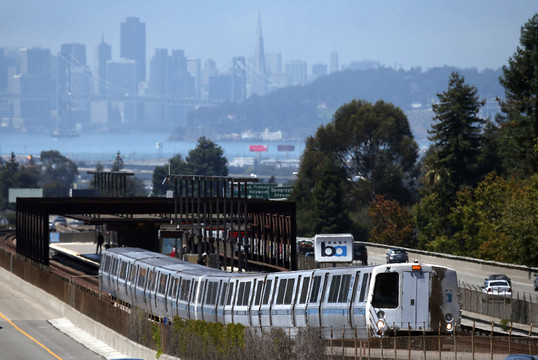Despite months of negotiating, the groups still worry the bill could harm the communities they represent because it wouldn't build enough affordable housing, said Anya Lawler, a policy advocate for the Western Center on Law and Poverty, one of the co-signers of the letter.
"Although we've had a lot of productive conversations on the bill, the version that remains in print is very concerning to us," Lawler said. "We fundamentally believe that in its current form, SB 50 would be damaging to low-income communities and communities of color."
They were joined by another coalition of more than three dozen tenants' rights organizations, including the Housing Rights Committee of San Francisco, the Los Angeles Tenants Union and others. In a separate letter last week to Wiener, the groups said the bill would stimulate speculation by Wall Street and hedge fund landlords and incentivize them to keep units vacant in order to drive up prices.
"The lack of truly affordable homes or substantive, enforceable tenant protections in SB 50 leaves too many vulnerable to the whims of the real estate market, which has undermined community stability for generations," the letter reads.
Wiener, a Democrat who represents San Francisco, has made a number of amendments to the bill since it was first introduced, including provisions to protect rental buildings from being torn down and to require that developers set aside up to 25% of new housing units as affordable housing. Local residents will also be given priority to rent or buy 40% of those affordable units. The bill would allow communities with high proportions of low-income residents at least five years to draft their own plans for meeting the bill's requirements before it goes into effect.
To appease officials concerned about a state-led, top-down approach, Wiener added a two-year grace period for municipalities to craft their own plans for allowing new development, so long as the plans achieve the same amount of housing under the bill and don't increase sprawl.
It was that change that helped Milpitas Councilmember Anthony Phan support the bill. Phan joined his fellow councilmembers last week in voting to endorse it.
"I applaud Sen. Wiener’s efforts to address many concerns raised about SB 50 in its previous iteration," Phan said in a statement. "We have devoted significant long-range planning efforts towards transit-oriented development through our Transit Area Specific Plan, and we encourage other cities to embrace what SB 50 is trying to accomplish."

